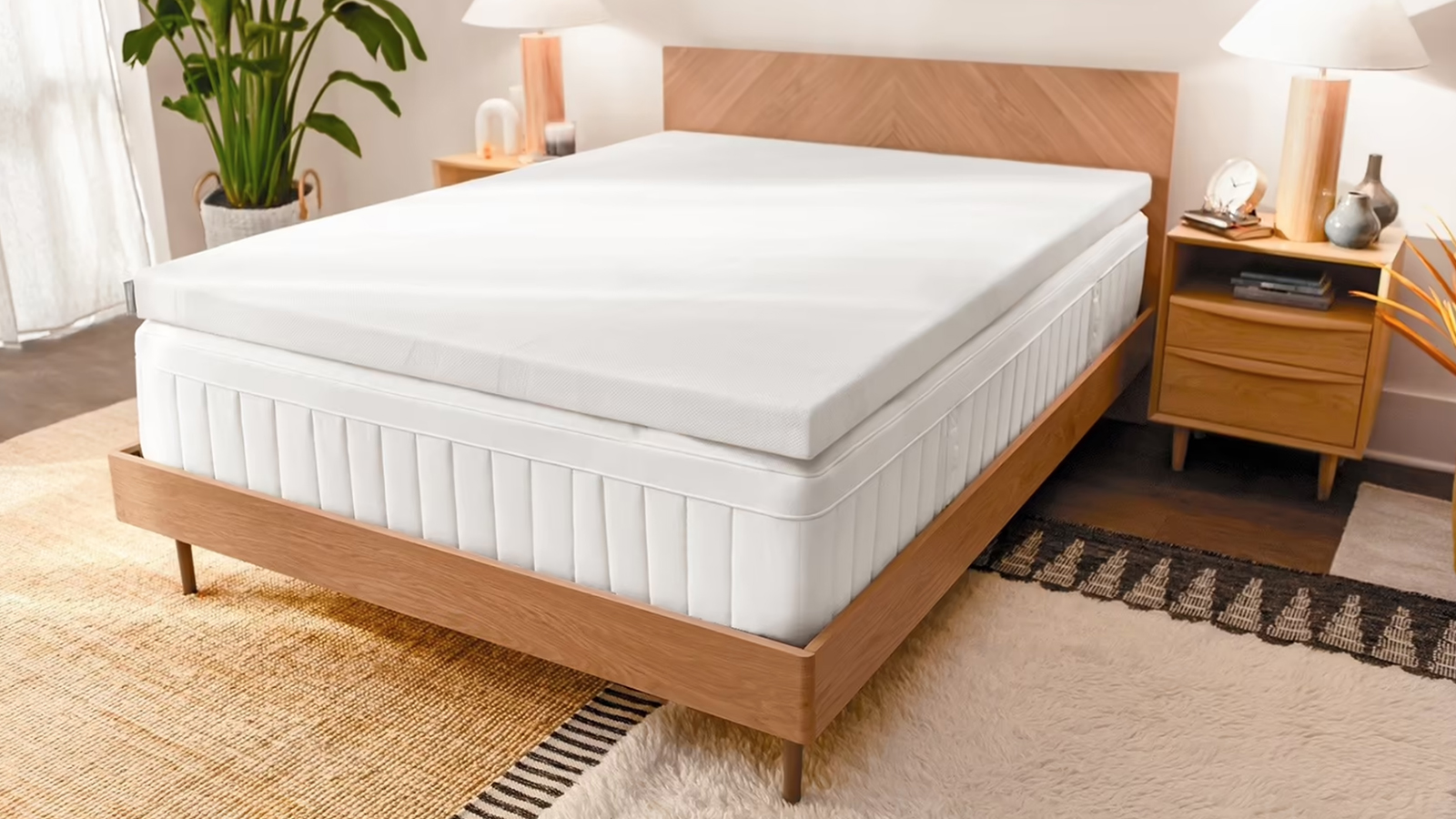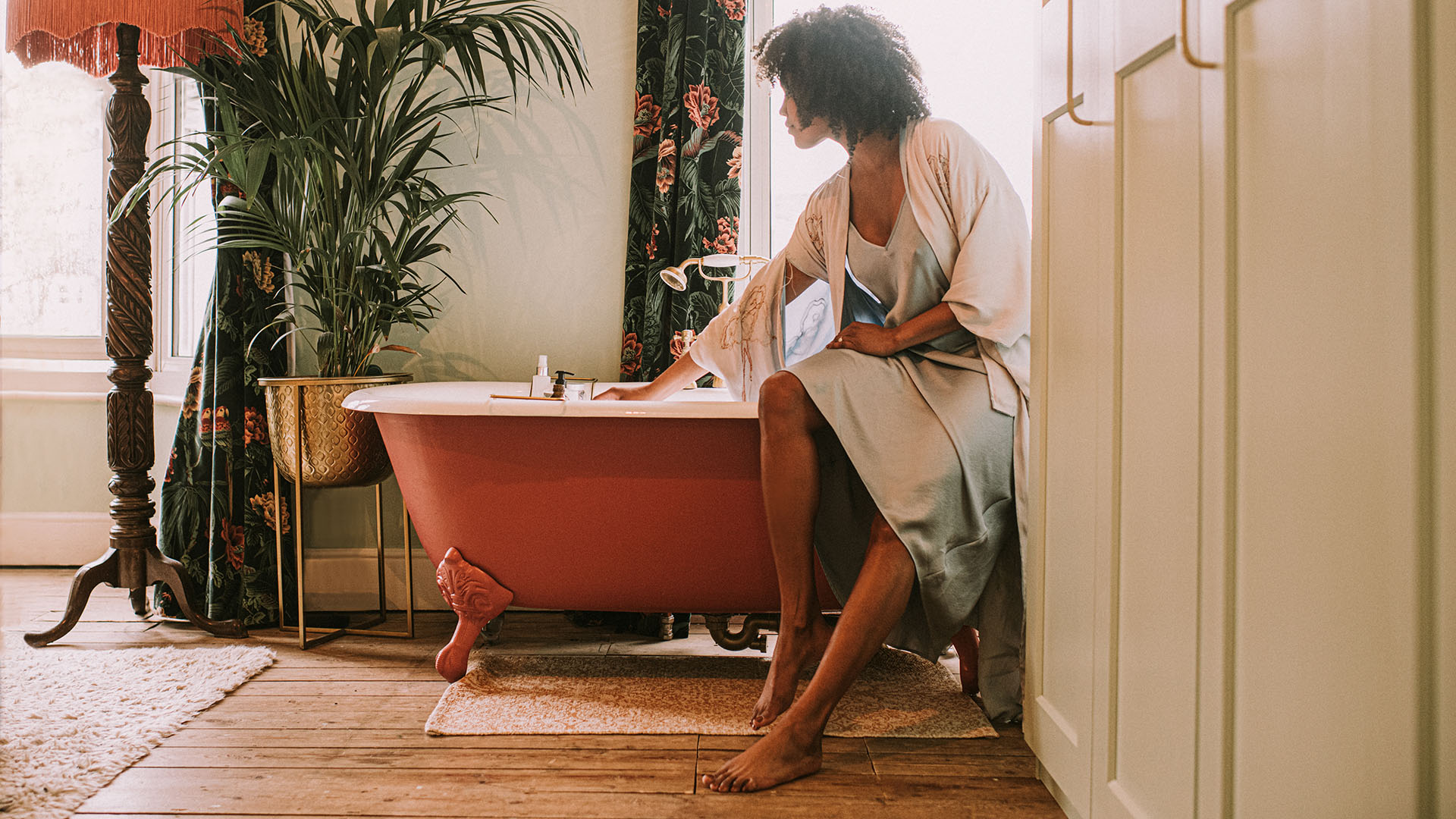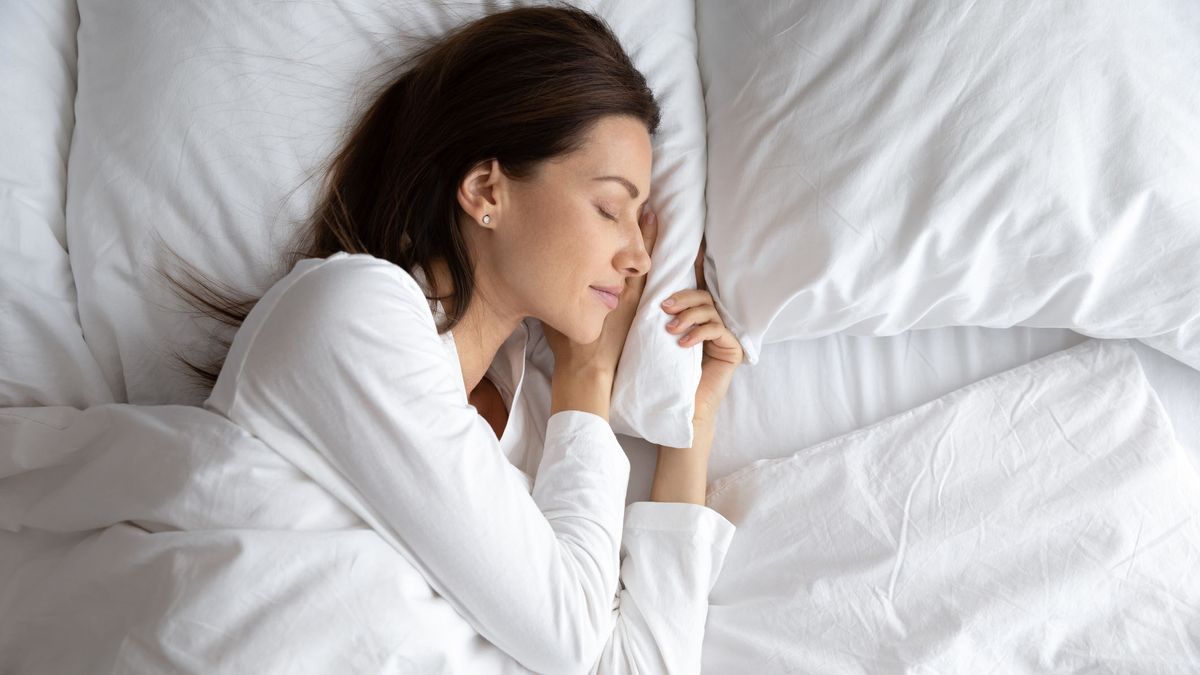As a sleep writer, I’m well-versed in the importance of getting a good night’s rest. The quality of our sleep underpins our overall health, with poor sleep impacting our cognitive ability in the short term and potentially even our cardiovascular health in the long term.
On a personal day to day level, I’ve found that I’m less productive, less able to regulate my emotions and more inclined to reach for the biscuit tin when I’ve had a poor night’s sleep. And yet, sleep is something that often eludes me. Whether it’s because of the racing thoughts that visit me at bedtime, late night scrolling on my phone, or being awoken by my children in the middle of the night, quality sleep is something that I’m in scant supply of.
But that’s all about to change, because getting better sleep is my number one goal for 2024. Sure, we’re only a few days into the new year but I’m already off to a roaring (snoring?) start — here’s how I’m already getting the best sleep of my life.
1. Eating dinner earlier
Recently, I had fallen into the habit of eating my evening meal later than normal, which subsequently disrupted my bedtime. I’m not alone in this — studies show that eating carb-heavy meals within an hour of your bedtime can extend the time it takes for you to fall asleep. To prevent this, I’m now making sure that I eat between two and four hours before my chosen bedtime, which allows my body plenty of time to properly digest my food before bed.
2. Making my bedroom a relaxing space
As a sleep writer, I have written at length about the importance of practicing good sleep hygiene. Good sleep hygiene means making your sleep environment a place that is conducive to sleep — that means clearing your bed of any clutter, getting the temperature right and lowering the lights. But sometimes, looking at my bedroom through the prism of sleep hygiene can feel a bit like a chore.
Instead, I’m now focusing on making my room a place where I want to retreat to and relax in. Closing the curtains, laying out my pajamas and placing my book ready on the bedside table are all small things that make me want to be in my bedroom. The outcome is the same (my sleep hygiene has improved), but I’ve just switched up how I get there.
3. Investing in a mattress topper
My mattress is six years old, which means that it could need replacing in the near future (we recommend replacing your mattress every six to ten years). Age isn’t the only indication that my mattress needs replacing — I’ve noticed that it’s started to soften up slightly. While my mattress used to keep my back in correct alignment regardless of the position I slept in, I now often wake with a throbbing pain in my lower back whenever I roll over onto my front.

In order to prolong the life of my mattress for a little longer, I’m going to invest in a new mattress topper to ensure that I’m still getting the support I need and to avoid any restless nights. I haven’t bought it yet, but I’ve got my eye on the Tempur-Pedic Tempur-Adapt mattress topper for pressure relieving support for side sleepers like me.
4. Wearing an eye mask
Wearing an eye mask is such a simple, cost-effective way to block out light pollution — and yet I’ve never bothered wearing one before. I got a sleep mask for Christmas and I already know that I’ll never revert to not wearing a mask again.
I didn’t realize how much the residual light from the street light outside and the various chargers dotted around my room was wreaking havoc on my ability to nod off. Now, if my children need their night light on or if I go to bed earlier than other members of my family, I know that
5. Swapping my phone for a book
We all know that the blue light emitted from technology such as laptops, televisions and smartphones inhibits our body’s natural production of melatonin, which is the sleep hormone that our brain produces in the run up to bedtime. And yet, I still find it hard to resist the allure of pre-bedtime scrolling.
Putting my phone on airplane mode and reading a book in bed (as opposed to doom-scrolling into the night) has been the single most transformative thing to my overall sleep quality. Instead of feeling tired yet wired, I can barely get through a few pages of my book before I turn the light out and fall into a deep, restful sleep.
6. Having a warm bath
Have you ever wondered why you often feel cold when you’re tired? This is because our body temperature drops by between 0.5 and 1° F (0.3 to 0.6° C) when gearing up for sleep. This is why taking a warm bath before bed has been scientifically proven to induce quality sleep, as the temperature drop we experience when getting out of a warm bath mimics the temperature drops our bodies undertake when getting ready for rest.

Although I don’t have the time for a bath every night, I have taken two in the last week and have slept peacefully and deeply after both. If you don’t have a bath (or don’t have time for a bath), taking a warm shower instead could be equally as effective.
7. Jotting down my worries in a journal
Even if I’ve followed all of the tips above, racing thoughts can quickly disrupt my entire night’s sleep. I have started jotting down my worries in another room before heading to bed in order to break the negative cycle of rumination, which is when we dwell on negative feelings of distress.
I try not to overthink it — I just spend five to 15 minutes writing down everything that’s troubling me, whether big or small. Journaling is working for me and studies suggest that it could work for your sleep, too.

Sarah Carter is a health and wellness expert residing in the UK. With a background in healthcare, she offers evidence-based advice on fitness, nutrition, and mental well-being, promoting healthier living for readers.








